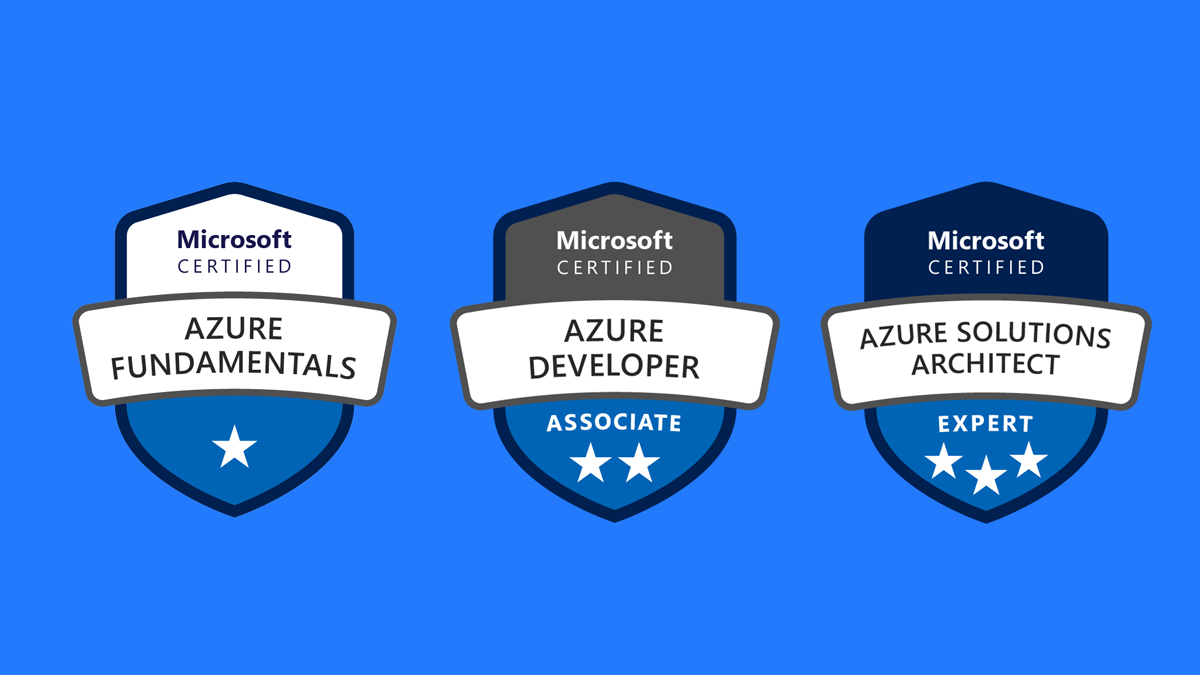
Microsoft Azure is definitely at the top of the list of best cloud providers these days. Even the largest organizations are quickly adapting to Microsoft Azure. It is quite obvious that a lot of people are starting in this industry, or they are already in for a long time, and clients’ demands are increasing worldwide, so demands for Azure Certification are growing as well.
As you are already here, you are probably wondering what’s the best of the best Azure Certification for you or which one you should get? Unfortunately, we are not able to tell you what to do with your life. But definitely, we can help you through this process, that’s why we are here!
If you are interested in making a successful career when it comes to the cloud domain, inquiring, and understanding the Azure certification process could be perhaps the exact thing you need. In the following section, we are going to explain all small threads of Azure certification.
Why should you get Azure certified?
But before giving a straightforward answer to the question of why should you get Azure certified, we feel obligated to tell you what exactly is Microsoft Azure Certification. Microsoft Azure is globally well known and absolutely recognized as one of the most reliable and confident cloud providers. So, it is pretty understandable why you need to get Azure certified as job demands like microsoft certified azure security engineer associate and opportunities for these professionals are constantly increasing, every single day in the last couple of years.
Now, get prepared for the WOW fact. Did you know that roughly, Microsoft Azure certified experts earn between $140,000 and $240,000 per annum? Now that we got your attention, let’s explore these Azura certifications in all small details.
Just one more thing. You are probably still wondering which path is best for you? Once again, there is no best path for everyone. We understand that getting started in the cloud industry can be tough.
Where Should I Begin?
First off, bear in mind that you need to understand what actually a Microsoft Azure certification is and make distinguish what it is not. You have to decide which cloud provider path is perfect for you, and moving toward the next steps won’t be easy as a walk in the park.
To make a long story short, let’s start with Microsoft Azure Certification levels: from Beginner to Expert.
Azure Fundamentals Certification
Basically, this one is for beginners, that’s why it falls under the fundamentals category. This certificate shows and validates that all candidates who passed the exam have a small, basic understanding of cloud concepts and know the core of Azure fundamentals, such as Azure support, pricing, other info, and so on.
Keep in your mind that this fundamental exam is completely optional, which means that you do not need to have this certification if you want to move to a higher level. Once again, this exam is created to test your basic cloud knowledge and understanding of Azure.
9 Azure Associate-level Certifications
#1 Microsoft Certified Azure Administrator: A person who wants to own this certification needs to know to manage and handle different cloud services, such as storage, networking, security, etc.
#2 Microsoft Certified Azure Developer: A person who wants to own this certification needs to be pretty proficient with building and designing cloud applications through using Azure technologies and tools.
#3 Azure AI Engineer Associate: For people who want to have the title of Microsoft Azure AI Professional.
#4 Azure Data Scientist Associate: For people who want to get involved in different tasks like arranging a couple of components in some particular sequence.
#5 Azure Security Engineer Associate: Prerequisites are deep knowledge of security control implementation and much more.
#6 Azure Data Engineer Associate: For people who want to learn data platform technologies that Azure offers.
#7 Azure Database Administrator Associate: Here, you are in charge of management and implementation of Microsoft Azure hybrid data and cloud-native platform solutions.
#8 Azure Architect for SAP Workloads Specialty: For engineers and architects who understand and have experience with the SAP ecosystem.
#9 Azure IoT Developer Specialty: Deep knowledge of deploying and developing IoT solution components on Azure.




